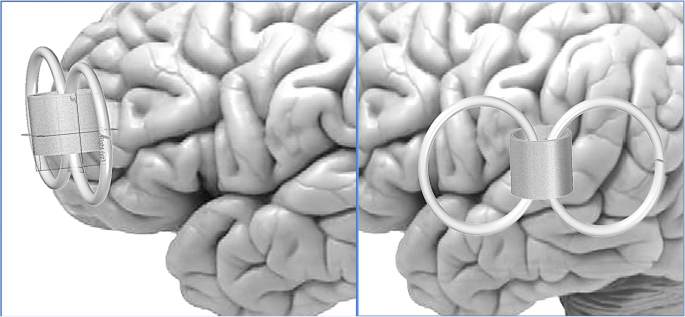Introduction:
Transcranial Magnetic Stimulation (TMS) therapy has become a beacon of hope for many battling mental health disorders. But what exactly happens in the brain during a TMS session? In this article, we’ll explore the fascinating neuroscientific mechanisms behind TMS therapy and its impact on brain activity and neurotransmitter levels.
The Science Behind TMS Therapy:
TMS therapy involves the use of magnetic pulses to stimulate specific areas of the brain. It’s a non-invasive procedure that has shown efficacy in treating depression, anxiety, OCD, PTSD, and more. When undergoing TMS, a coil is placed against the scalp, delivering magnetic pulses to targeted regions of the brain.
Influencing Brain Activity:
“One of the key effects of TMS therapy is its ability to modulate brain activity. By targeting specific brain regions, TMS can either increase or decrease neural activity. For example, in depression treatment, TMS often targets the dorsolateral prefrontal cortex (DLPFC), a region associated with mood regulation. By enhancing activity in this area, TMS can alleviate depressive symptoms”. Says, Dr. Marc Gibber, a cardiothoracic surgeon at Baptist Health South Florida.
Impact on Neurotransmitters:
“Neurotransmitters are the brain’s chemical messengers, responsible for regulating mood, behavior, and cognition. TMS therapy has been found to influence the levels of key neurotransmitters, contributing to its therapeutic effects. TMS has been shown to increase serotonin levels in the brain, which is crucial for mood regulation and often depleted in depression. TMS can also affect dopamine levels, which are involved in motivation and pleasure. By modulating dopamine activity, TMS may help alleviate depressive symptoms and restore motivation. As the primary excitatory neurotransmitter, glutamate plays a role in various psychiatric disorders. TMS therapy has been found to modulate glutamate levels, potentially contributing to its antidepressant effects”. Says, Says Allen Seavert, Director of American TMS Clinics.
Understanding the Mechanisms:
“While the exact mechanisms of TMS therapy are still under investigation, several theories have been proposed to explain its effects on brain activity and neurotransmitter levels. TMS is believed to induce changes in synaptic strength and neural connectivity, a process known as neuroplasticity. By stimulating specific brain regions, TMS may promote the formation of new neural pathways, leading to therapeutic effects. TMS can alter the balance between excitatory and inhibitory neurotransmission in the brain. By modulating the activity of excitatory and inhibitory neurons, TMS may restore the disrupted balance seen in psychiatric disorders. TMS has been shown to induce changes in cerebral blood flow and metabolism. By increasing blood flow to targeted brain regions, TMS may enhance the delivery of oxygen and nutrients, promoting neuronal health and function”. Says, Dr. Sarah Rahal, a board-certified neurologist, and the CEO and Founder of ARMRA
The Human Side of TMS Therapy:
Beyond the science, it’s essential to understand the human side of TMS therapy. For many, TMS offers hope and relief from the burdens of mental illness. Hearing stories of individuals who have undergone TMS and experienced life-changing results can provide invaluable insight into its impact on mental health.
Looking Ahead:
As we continue to uncover the mysteries of the human brain, TMS therapy stands as a beacon of hope for those struggling with mental health disorders. With ongoing research and advancements in the field, TMS holds the promise of a brighter future for individuals seeking relief from the challenges of mental illness.
Conclusion:
In conclusion, Transcranial Magnetic Stimulation (TMS) therapy represents a significant advancement in the treatment of various mental health disorders. By understanding the intricate neuroscientific mechanisms behind TMS therapy, we gain insight into its profound impact on brain activity and neurotransmitter levels. TMS therapy, with its non-invasive nature and proven efficacy, offers hope to individuals grappling with conditions like depression, anxiety, OCD, and PTSD. Through the precise targeting of brain regions and modulation of neural activity, TMS can alleviate symptoms and improve overall well-being. The influence of TMS on neurotransmitters like serotonin, dopamine, and glutamate further underscores its therapeutic potential. By restoring the balance of these essential chemical messengers, TMS helps regulate mood, motivation, and cognitive function.


